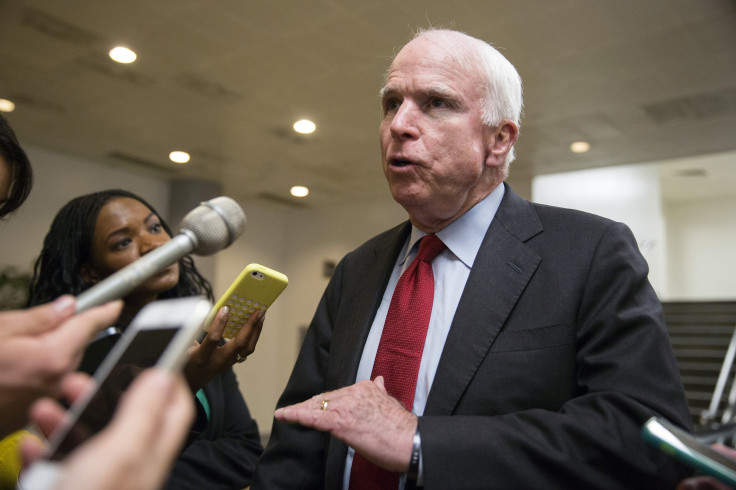After Republican Midterms Win, US Defense Industry May Benefit - Or Not

With the Republican Party taking control of the Senate and securing its hold on the U.S. House of Representatives in Tuesday’s midterm elections, it’s expected that forced defense sequestration in 2016 will end. But while the Republican Party in charge of both houses may suggest a pro-defense stance, there is a counterintuitive take: The likely nomination of John McCain to chairman of the Senate Armed Services Committee could bring a cautious approach to military spending.
McCain may be known as a defense hawk, but he has traditionally been a major critic of large defense projects, such as the $1 trillion F-35 program and the Navy’s Littoral combat ships, expected to cost upward of $34 billion. McCain also helped sink a U.S. Air Force deal to lease air-refueling tankers from Boeing in the mid-2000s, which resulted in the sentencing of two former Boeing officials to prison.
This has antagonized the defense industry in the past. But while McCain and the Armed Services Committee are likely to increase scrutiny on major defense projects, it is also likely they will try to ease across-the-board defense cuts that have squeezed defense industry revenue in recent years. However, the Senate Armed Services Committee has no control over setting the budget, but can, through setting policies, decide how the money is spent.
“You have to remember that John McCain is an authorizer, not an appropriator, and he also doesn’t run the budget committee,” said James Carafano, vice president for Foreign and Defense Policy Studies at the right-leaning Heritage Foundation in Washington. “So he is influential, but he’s not gonna decide what the next budget is going to be.”
While the Republican Party largely supported sequestration cuts two years ago, the U.S. military is facing a multitude of new missions, forcing it to pivot from 13 years of war in Afghanistan to fighting ISIS across the Middle East, Ebola in West Africa, and facing a more aggressive Russia in Ukraine and in eastern Europe, as well as a rising China in East Asia.
The fight to eradicate a determined jihadist group like ISIS, as the U.S. knows from combating the Taliban in Afghanistan, is a chronic battle. Equally, Russia’s annexation of Crimea and support of separatists in East Ukraine, which is seemingly pulling the West into a Cold War-type scenario, poses the United States some serious questions about how it spends on defense.
"I wouldn't forecast any huge shifts right away," said one defense industry executive cited on Wednesday by Reuters, who also noted that McCain had worked closely with Democrats in the past on a number of reforms and weapons-oversight projects.
And while McCain may go after individual projects, according to Carafano he will do pretty much what a Democratic-held Senate would have done in terms of the overall budget. “Politicians can’t look at the American people in the face and say, 'Hey, we don’t need much of a defense,' '' he said. “People are looking at the conflicts in the Middle East, Ukraine and a rise in China and want to remain well defended. The Democrats would have also responded to that.”
© Copyright IBTimes 2024. All rights reserved.






















